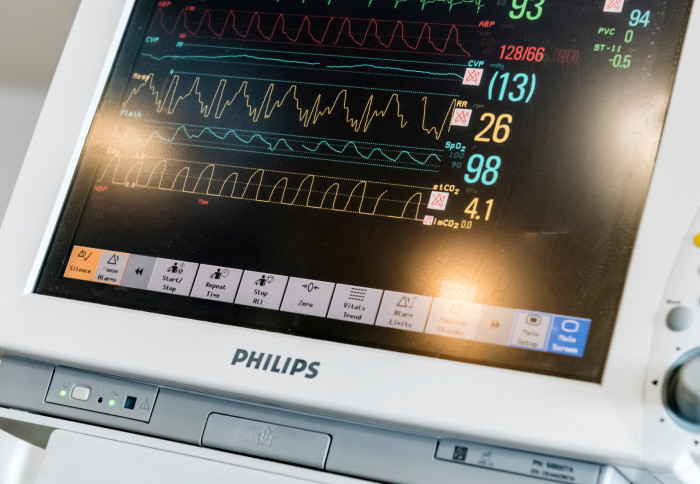Trial to explore more effective treatments for seriously ill COVID-19 patients
by Maxine Myers

A major trial is underway to explore how artificial intelligence can be used to develop more effective treatments for very ill COVID-19 patients.
Dr Brijesh Patel, Clinical Senior Lecturer at Imperial College London and Honorary Consultant at Royal Brompton & Harefield NHS Foundation Trust, is leading a trial to test a new AI device to help monitor the lung physiology of patients with severe COVID-19 pneumonia. He was speaking at the Imperial College Academic Health Science Centre (AHSC) seminar event which took part earlier this month.
The talk can be watched in the video below.
Patients with severe symptoms of COVID-19 may develop a condition known as Acute Respiratory Distress Syndrome (ARDS) – a life-threatening condition where the lungs cannot provide the body’s vital organs with enough oxygen and may require mechanical ventilation in intensive care.
Mechanical ventilation delivers a volume and pressure of gas for each breath and can vary oxygen levels. Selecting the right ventilator settings is important as incorrect settings can cause further damage to patient’s lungs.
The DeVENT study is testing a new AI device called the Beacon Care system, which connects to a ventilator and advises healthcare staff on the best ventilator settings for each patient. Clinicians input data on a patient’s condition and the system uses mathematical calculations to recommend ventilator settings more suited to an individual’s needs.
ARDS develops as a result of injury to the cells in the tiny airspaces and blood vessels within the lung. In COVID-19 pneumonia, there seems to be considerable damage to the blood vessels with poor perfusion throughout the lungs. This has been highlighted in a recent publication looking at specialist CT scans of patients with COVID-19 in intensive care units. The DeVENT study platform is also examining how ‘smart physiological data’ such as aeration and blood flow obtained from the system in real time can allow for a better understanding of this respiratory physiology and potentially understand treatment responses. Dr Patel also explained that this system could be used to help with the NHS’ response to COVID-19 during the winter months when demand for the service is expected to increase.
The team is also collecting samples and images of patients’ to better understand the disease and through collaborations across the AHSC, the DeVENT study platform has successfully been awarded a number of COVID-19 response grants for the rapid understanding of new mechanisms of lung failure during this pandemic.
Article text (excluding photos or graphics) © Imperial College London.
Photos and graphics subject to third party copyright used with permission or © Imperial College London.
Reporter
Maxine Myers
Communications Division